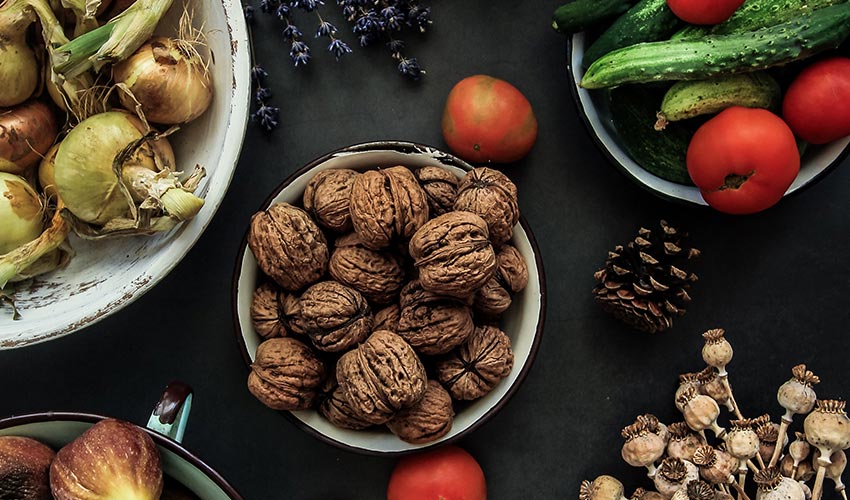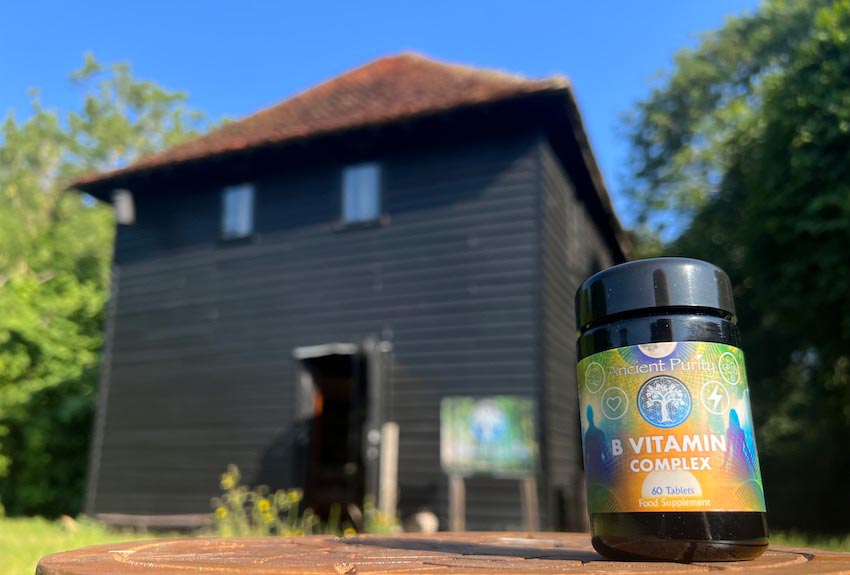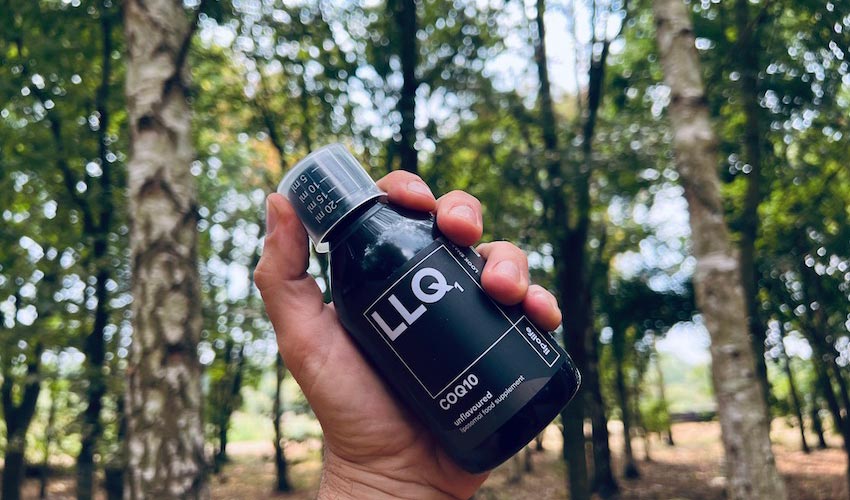How to Boost Mitochondrial Function
Get ready to kick your Mitochondria into high gear! If you want these tiny powerhouses to be at their absolute best, it's time to optimise your health and function in some simple yet oh-so-effective ways. First up, let's talk about fuel. Forget those highly processed foods that do nothing but throw a wrench in your fat-burning abilities. Say goodbye to those greasy, sugary temptations and focus instead on an ancestral diet. Fill your plate with whole, real foods that your body knows how to handle. Not only will you become a lean, mean fat-burning machine, but you'll also give your mitochondria a break from all that oxidative stress they've been dealing with.
Now, let's dig into meal timing. Picture this: you're about to hit those cosy sheets and instead of giving your body a chance to wind down and regenerate, you decide to stuff your face right before bedtime. Big mistake! When you do that, your Mitochondria go bonkers. Excessive amounts of those terrible free radicals are formed, wreaking havoc on your precious mitochondrial DNA. So, do yourself a favour and enjoy your last meal at least three hours before you hit the hay. Your Mitochondria will thank you. Speaking of exercise, it's not just for those biceps and glutes – it's also a Mitochondria booster. Get moving, and you'll upregulate some fancy genes like PGC-1 alpha and Nrf2 that help your mitochondria become more efficient. So, unleash your inner fitness guru and give those little powerhouses a workout they'll never forget.

But it's not just food and exercise that affect your mitochondria. Nope, they're also sensitive souls when it comes to stress and environmental toxins. Heavy metals, you better watch out! To combat these wicked foes, you can turn to a near-infrared sauna. Sweat it out and say goodbye to those toxins while getting some well-deserved stress relief. And guess what? The benefits don't stop there. Near-infrared saunas also give your mitochondria a boost by stimulating the production of melatonin. This powerful antioxidant swoops in like a superhero, mopping up all those vicious ROS that try to mess with your Mitochondria. So, what are you waiting for? Take charge of your Mitochondrial Health, and who knows, you might just unleash a new level of energy and vitality that would make even the Energizer Bunny jealous. Get ready to shine bright!
Boost Your Mitochondrial Health with These 6 Dynamic Supplements
When it comes to amping up your mitochondrial mojo, there's more than one trick up Mother Nature's sleeve. Sure, eating your greens, nailing the timing of your meals, and busting out those sweat beads at the gym are all legit strategies. But hey, why not throw some food supplements into the mix to kick your mitochondria into high gear? Don’t forget to click on the hyperlinks if you want to learn more about a certain Ancient Purity supplement (s). Check out these top contenders:
Glycine… is the nonessential amino acid that your body can kinda make but not really enough to reach its full potential. It's like that friend who shows up to the party but doesn't quite bring enough chips for everyone. Turns out, this amino acid is a superstar when it comes to keeping you young and fending off those pesky age-related diseases. You see, scientists used to blame mutations in Mitochondrial DNA for making those powerhouses less efficient as you age. But hold the phone, Japanese researchers were like, "Nah, it's actually these epigenetic changes that are the real culprits." So they went to work and pulled off some gene regulation magic that made ageing Mitochondria act all sprightly again. And guess what they used? Yep, good ol' Glycine. It was like a shot of espresso for those tired Mitochondria. Glycine is like the building block of collagen, the protein that's practically everywhere in your body. It's the MVP of proteins. Plus, glycine is a precursor to this bad-ass antioxidant called glutathione, which unfortunately takes a nosedive as you age. But fear not, because glycine has a trick up its sleeve. It can induce autophagy (fancy word for cell cleanup) and mimic methionine restriction. And why is that important? Well, restricting methionine is like hitting the jackpot of youthfulness. It helps with glucose control, obesity, and even protects against fatty liver. Now, let's turn our attention to this dynamic duo, glycine, and N-Acetylcysteine (NAC). When these two team up, they create an antioxidant bonanza called GlyNAC. And boy, did they do wonders for those poor glutathione-deficient mice. They not only fixed the glutathione problem but also improved mitochondrial issues, kicked oxidative stress to the curb, and even tackled insulin resistance like a boss. And you know what's even cooler? They did the same thing in HIV patients who were dealing with premature ageing. GlyNAC swooped in and saved the day, making everything from oxidative stress to cognition better than before. But there's more to this tale! A pilot trial in older humans showed that 24 weeks of GlyNAC supplementation worked wonders. It banished glutathione deficiency, improved mitochondrial and endothelial dysfunction, fought off inflammation, and even gave a boost to strength and brain power. It was like a magical potion of health. Glycine is the unsung hero of amino acids, and it is here to keep you feeling youthful and vibrant. Just remember, when life hands you aging mitochondria, bring out the Glycine. Researchers at Baylor College of Medicine also looked into supplementation with a combination of glycine and N-acetylcysteine (NAC), two glutathione precursors known as GlyNAC when taken together. They had previously shown that young mice deficient in glutathione had mitochondrial dysfunction, and supplementing with GlyNAC in older mice not only improved glutathione deficiency but also mitochondrial impairment, oxidative stress and insulin resistance. Additional research they conducted in HIV patients and found GlyNAC supplementation improved “deficits associated with premature aging” in this population. This included improvements to oxidative stress, mitochondrial dysfunction, inflammation, endothelial dysfunction, insulin resistance, genotoxicity, strength and cognition. A subsequent pilot trial in older humans found similar results, with GlyNAC supplementation for 24 weeks correcting glutathione deficiency and improving multiple measures of health, including mitochondrial dysfunction, endothelial dysfunction, inflammation, cognition, strength and more.

B Vitamins… are not just some fancy supplements for hipsters who want to enhance their Mitochondria. These vitamins are actually crucial for optimal Mitochondrial functioning. Dr. Frank Shallenberger, the natural medicine guru, knows what's up. He says that B vitamins, especially niacin, riboflavin, and folate, are absolutely critical for those little powerhouse cells. And when it comes to niacin, he doesn't mess around. He starts his patients at 100 to 200 milligrams a day, but he's not afraid to crank it up to 2,000 milligrams if necessary. Talk about a niacin party! But let's not forget about riboflavin. This sneaky vitamin deficiency might just be the culprit behind some mitochondrial dysfunction. And you know what that means? Central nervous system disorders like migraines could come knocking on your door. According to those brainy researchers published in Frontiers in Neurology, riboflavin can come to the rescue. It tackles oxidative stress, mitochondrial dysfunction, neuroinflammation, and even glutamate excitotoxicity. Yeah, it's like riboflavin is putting on its superhero cape and saving the day for all you folks with Parkinson's disease, migraines, and other neurological disorders. And here's a fun fact for you migraine warriors out there: it turns out that people with migraines have higher levels of mitochondrial dysfunction. It's like there's a party going on in their cells, but it's definitely not the fun kind. But fear not, my friends. Riboflavin is here to save the day! It helps relieve that pesky mitochondrial dysfunction and gets those cells back in shape. So, where can you find this magical riboflavin? Well, if you're tired of popping pills, you're in luck. You can actually get riboflavin from some pretty tasty foods. Think spinach, beet greens, crimini and portabella mushrooms, pastured eggs, asparagus, grass-fed beef liver, and beef tenderloin. It's like a riboflavin feast! So, remember, B vitamins are not just some boring letters in the alphabet. They're the unsung heroes of your Mitochondria, the defenders of your cells. So next time you're chowing down on some spinach or savouring a juicy beef tenderloin, give a little shout-out to those B vitamins. They deserve it.
Niacinamide… or the cool kids call it nicotinamide, is like the energy wizard of the B3 vitamin world. It's all about keeping the Mitochondrial electron transport chain in top shape, making sure those Mitochondria can churn out all the energy your body needs. And why is that so important? Well, niacinamide is the VIP precursor for NAD+, the mighty molecule responsible for turning your food into fuel, keeping your DNA in check, and making sure your cells are running like a well-oiled machine. Plus, NAD+ is the go-to fuel for sirtuins, your body's very own longevity squad that tends to dwindle as you age. Taking 50 milligrams of niacinamide three times a day is like giving your NAD+ production team a much-needed caffeine boost to get things moving. Not only does niacinamide have superhero-like anti-obesity powers, but it can also swoop in to rescue your brain from neurodegeneration, keep your ticker in top condition, and even patch up a leaky gut. This stuff is legit! Some sharp minds have found that low NAD+ levels are a common theme in pretty much all types of brain diseases, and they believe niacinamide could be the key to revving up your mitochondrial engines and keeping your energy levels soaring. Oh, and let's not forget about our trusty sidekick aspirin. This little pill isn't just for headaches – it's got some serious skills when it comes to Mitochondria antics, as well as a bunch of other health-boosting benefits. It's like the yin to niacinamide's yang, working together in perfect harmony to keep your brain and body in tip-top shape. So, if you're all about protecting your brain and ageing like a fine wine, this dynamic duo might just be your new best friends.

Coenzyme Q10 (CoQ10)… is a fat-soluble antioxidant which is found in nearly every cell in your body but concentrates in the mitochondria, where it’s involved in energy production.16 As a cofactor in the electron-transport chain, CQ10’s primary action involves the synthesis of adenosine triphosphate (ATP), which your cells need for life, repair and regeneration. Many conditions, including heart disease, appear to be rooted in mitochondrial dysfunction. Cardiac muscle cells have about 5,000 mitochondria per cell, where CoQ10 concentrates. For further comparison, mitochondria make up about 35% of the volume of cardiac tissue and only 3% to 8% of the volume of skeletal muscle tissue. While CoQ10 doesn’t stimulate the growth of new mitochondria, it’s essential to its metabolic function. Further, according to researchers with Liverpool John Moores University in the U.K. “Secondary deficiencies of CoQ10 typically occur in the mitochondrial myopathies, cardiovascular disease, type II diabetes, chronic kidney disease, liver disease and critical illness. Depletion of CoQ10 in these disorders may compromise cellular antioxidant status and result in impaired mitochondrial function and cellular energy supply, resulting in, for example, heart failure.” Ubiquinol is the reduced version of CoQ10. Young people are able to use CoQ10 supplements quite well, but older people do better with ubiquinol, as it's more readily absorbed. You can get some CoQ10 from food as well. Food sources include wild-caught salmon, mackerel, sardines, eggs and organ meats. You may also be able to improve your body's conversion of CoQ10 to ubiquinol by eating lots of green leafy vegetables, which are loaded with chlorophyll, in combination with sun exposure. If you're taking a statin drug you must also take at least 100 to 200 mg of ubiquinol or CoQ10 per day, or more. Supplementation is also appropriate for those with chronic diseases such as heart disease, diabetes, amyotrophic lateral sclerosis (ALS), chronic fatigue and autism. Ideally, split the dose up so you’re taking it two or three times a day, rather than taking it all at once, as this will result in higher blood levels.
Vitamin K2…Well, would you look at that! We've got ourselves two versions of vitamin K, like two peas in a pod. First up, we've got our buddy vitamin K1, aka phylloquinone. It's all about maintaining the blood clotting game and where does it come from? Well, it's hauled in from green, leafy superheroes like spinach, kale, broccoli, and cabbage. They're the MVPs when it comes to blood-clotting nutrition. And then we've got the rock-star, vitamin K2. This cool cat is famous for flexing its muscles in the bone and heart health department. Where does it hang out? Well, it's chilling with the grass-fed animals, like meat, eggs, liver, and dairy. Plus, it's not one to pass on a good party, so you'll find vitamin K2 at all the fermented food shindigs, like sauerkraut, certain cheeses, and the funky fermented soy sensation known as natto. But hey, let me drop a knowledge bomb on you. Vitamin K2 isn't just one-dimensional as it's got more layers than an onion. This fat-soluble vitamin can pull off some antioxidant wizardry and save the day as a neuroprotective hero. In fact, those brainiac researchers went to town on it and discovered that vitamin K2 can put the breaks on some unconvenient mitochondrial dysfunction caused by neurotoxins. They took some fancy SH-SY5Y cells, the brain disorder model soldiers, and exposed them to a nasty compound called 6-hydroxydopamine. Basically, it's the brain cell destroyer. But wait, there's a twist! They doused those cells with vitamin K2, and BAM! Improvements galore! While 6-hydroxydopamine was throwing a mitochondrial rave with all sorts of abnormal changes, vitamin K2 swooped in and shut that party down. It also showed those reactive oxygen species who's boss and promoted the clean-up crew known as mitophagy, giving damaged mitochondria the boot through autophagy. Talk about being the ultimate cellular health protector. So, according to the brilliant minds over in Nutrients journal, vitamin K2 is like the guardian angel that repairs and maintains the Mitochondrial quality-control loop. It's got the keys to keep that whole system running smoothly, preventing neuronal cell death caused by Mitochondrial damage. Now that's what I call a superhero vitamin.

Pyrroloquinoline Quinone (PQQ)… is the hip cousin of CoQ10, is like a total cheerleader for your Mitochondria. You see, the more of those powerhouse cells you have, the more energy your body can generate, and the better you function overall. So, it's a total win-win to have a good amount of PQQ in your system, as it encourages the multiplication of those little energy factories. But don't take my word for it. A mouse study found that supplementing with PQQ totally tweaked the quantity and function of Mitochondria. Talk about a boost! And hey, it's not just mice that benefit from this stuff – humans too! Doses of 10 to 20 milligrams of PQQ have been shown to seriously improve mental processing and memory. I'm talking about some supercharged brain power here. Now, don't forget the secret sauce – taking PQQ in combination with CoQ10 is where the real magic happens. It's like the perfect power couple for your Mitochondria. They support each other and enhance their awesomeness. PQQ is a superhero when it comes to protecting against the bad guys – alpha-synuclein (the troublemaker in Parkinson's disease) and beta-amyloid (the nemesis of Alzheimer's). Research even suggests that taking 20 milligrams of PQQ every day can amp up Mitochondrial biogenesis in humans. Are you feeling the power yet? So, why settle for low energy and sluggish brain function when you can supercharge yourself with PQQ? It's time to unleash your inner Mitochondria and conquer the world!
"In the grand theatre of life, where the energy of passion meets the stage of action, the mitochondria of determination fuels the performance." – P.H.






















